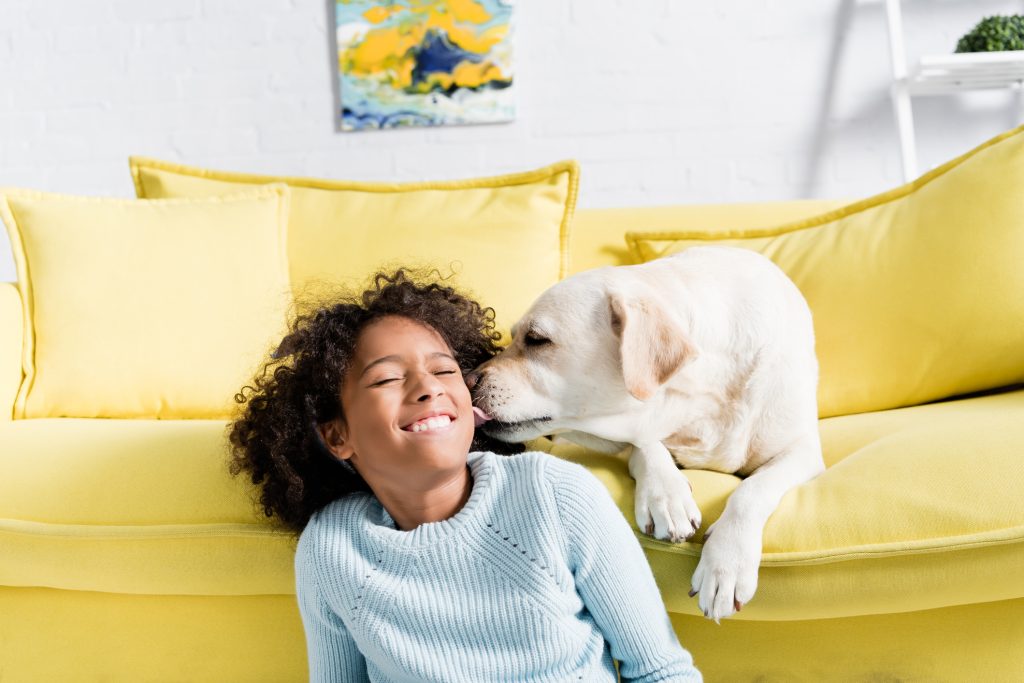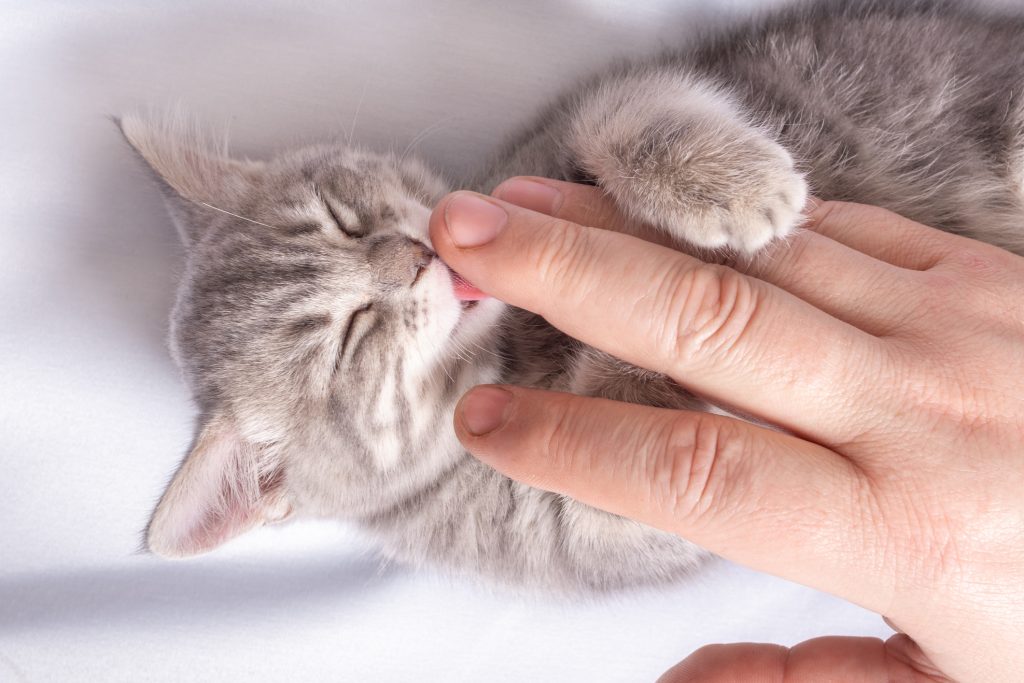Ever wondered why your dog or cat licks you? Whether it’s a wet nose on your hand, a gentle lick on your cheek, or a full-on grooming session, licking is one of the most common ways pets communicate. Understanding why dogs and cats lick you can help you interpret your pet’s needs, strengthen your bond, and even prevent unwanted behavior.
Hollywood Feed knows pets use licking as a natural behavior to communicate love, seek attention, or explore their world. We’re here to break down the reasons behind this behavior and share tips to manage it.
Reasons Why Dogs and Cats Lick You
1. Showing Affection and Bonding
Licking is often a sign of love. Dogs and cats may lick you to show affection, much like a human hug. Puppies and kittens lick their mothers as a bonding mechanism, and adult pets carry this behavior forward with their humans.
2. Seeking Attention
If your pet licks you after waking up, when you walk in the door, or while you’re busy, it might be their way of saying, “Notice me!” Licking often leads to petting, treats, or playtime—so your furry friend quickly learns it’s an effective way to get your attention.
3. Taste and Curiosity
Dogs and cats experience the world through their mouths and tongues. Salty skin, lotion, or even crumbs on your hands may entice licking. This is especially common after meals or during cuddles.
4. Grooming Behavior
Cats, in particular, are natural groomers. When a cat licks you, they may be treating you like part of their social group, similar to how they groom other cats to strengthen bonds. Some dogs exhibit grooming-like licking for the same reason.
5. Anxiety or Stress
Licking can also be a self-soothing behavior. Dogs and cats may lick excessively when they’re stressed, anxious, or seeking comfort. If licking seems compulsive, it could indicate that your pet needs more enrichment, exercise, or attention.
6. Medical Reasons
While occasional licking is normal, excessive licking may signal underlying health issues like nausea, dental problems, or skin irritation. Always monitor changes in behavior and consult your veterinarian if needed.
How to Manage Licking
-
Positive Reinforcement: Reward calm behavior with treats, praise, or petting instead of reinforcing constant licking.
-
Distraction & Toys: Redirect attention to interactive toys, chew treats, or puzzle feeders to reduce unwanted licking.
-
Consistent Boundaries: Gently discourage licking at inappropriate times while providing plenty of attention and affection at other moments.
-
Check Health: Ensure your pet doesn’t have medical issues causing excessive licking.
Fun Facts About Licking

-
Dogs have about 1,700 taste buds on their tongues!
-
Cats have barbed tongues that make grooming efficient and enjoyable.
-
Licking releases endorphins in dogs and cats, which is why it feels rewarding to them.
Recap: Why Dogs and Cats Lick You
-
Licking can show affection and strengthen bonds.
-
Pets may lick to seek attention or communicate needs.
-
Taste, grooming instincts, and curiosity drive licking behavior.
-
Excessive licking may indicate stress, anxiety, or medical issues.
-
Redirecting or rewarding behavior can manage excessive licking.
Frequently Asked Questions
Q: Is it normal for my dog or cat to lick me all the time?
A: Occasional licking is normal and healthy. Excessive licking may require attention to stress, behavior, or medical issues.
Q: Can licking be a sign of love?
A: Yes! Licking is one way pets express affection, bond with their humans, and show trust.
Q: Should I discourage licking completely?
A: Not necessarily. Teach boundaries for excessive licking, but normal licking is a healthy part of communication.
Q: What can I do to reduce unwanted licking?
A: Use distractions like toys or treats, reward calm behavior, and maintain consistent boundaries.
Q: Could licking be a medical problem?
A: If your pet suddenly licks excessively or targets one area of the body, consult your veterinarian.
Understanding why dogs and cats lick you can help you strengthen your bond, recognize their needs, and keep them happy and healthy. Next time your pet gives you a loving lick, you’ll know it’s their unique way of saying, “I love you!”
Visit your local Hollywood Feed store or shop online to explore our selection of treats, toys, and enrichment items—and check out our blog for more pet behavior insights and care tips.









